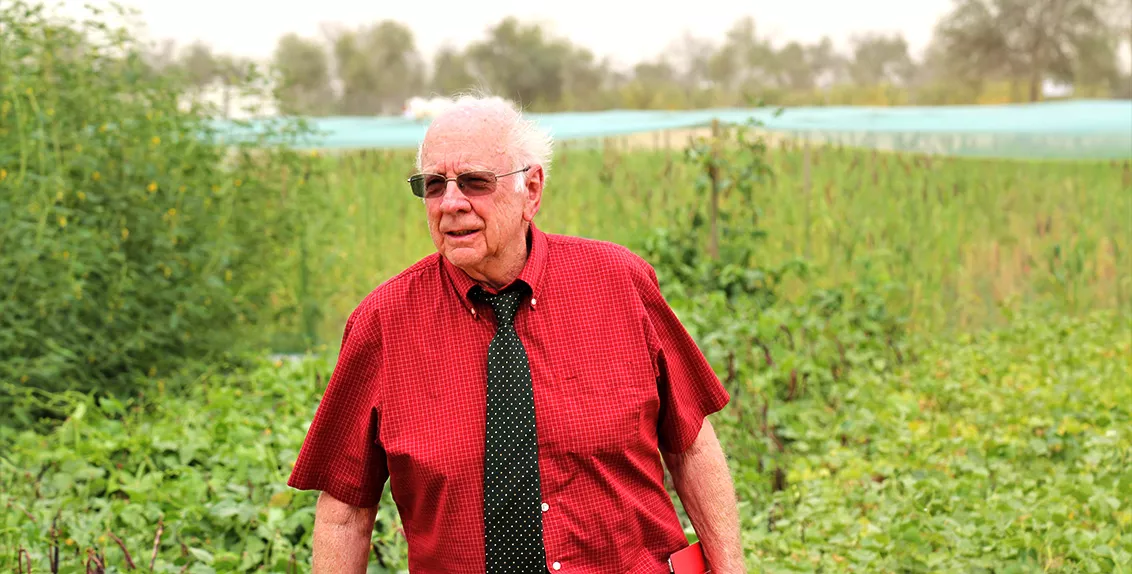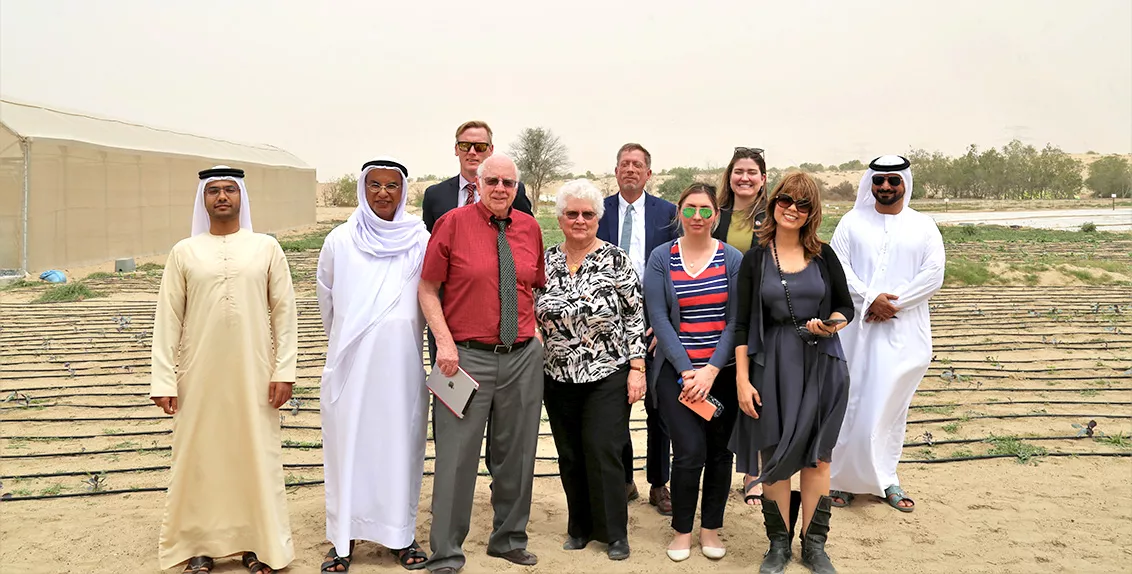ICBA plays host to veteran US biosaline agriculture scientist
26 March 2019
Dr. Merle Jensen, who in the 1960s pioneered biosaline agriculture in the UAE deserts, has visited the International Center for Biosaline Agriculture (ICBA) in Dubai to learn about the center’s research-for-development work in marginal environments.
Dr. Merle Jensen is the founder of the Controlled Environment Agriculture Center (CEAC) and Professor Emeritus of Plant Life Sciences at the University of Arizona, USA. He has worked in the field for over four decades and has supported agricultural programs in over 60 countries around the world.
While interacting with ICBA’s management and scientists, he expressed his admiration for the center’s 20-year-long service in marginal environments of the world.
He said: “I am really happy to see what ICBA has achieved in the past two decades; the center has gone a long way in greening the deserts and harsh lands of the UAE and other countries with similar environments.’’
Speaking about his research work in Saadiyat Island in Abu Dhabi in the 1960s, he said: “The Saadiyat project gained tremendous respect for furthering the scientific knowledge for producing food crops in one of the most barren deserts in the world. I am honored and grateful to the late Sheikh Zayed bin Sultan Al Nahyan, the founding father of the UAE, for having had this incredible opportunity. He was a true visionary and a wonderful and caring leader that thrust a small country onto the world’s science stage by enabling a miracle in the desert.”
In her welcome address, Dr. Ismahane Elouafi, Director General of ICBA, said: “We are honored to host one of the world’s top scientists at ICBA. Dr. Merle Jensen’s research and expertise are extremely relevant to ICBA’s mission. Since 1999, the center has been working with farmers and other partners in the marginal environments of more than 30 countries of the world to introduce crops and technologies suited to the local conditions. Over the years, ICBA scientists have trained more than 2,000 individuals from around 75 countries, as well as provided numerous fellowship and internship opportunities to young professionals. The center is also developing itself as a knowledge hub on sustainable management of marginal resources for agricultural production and environmental protection.”
“It is a great opportunity for our scientists to learn about the UAE’s agricultural history through the eyes of Dr. Merle Jensen. I would like to thank all the organizers for making this visit possible,” Dr. Ismahane Elouafi added.
For his part, Mr. Scott Charles Bolz, Chief of Public Affairs Section at the US embassy in Abu Dhabi, said: “The US embassy in Abu Dhabi welcomes the visit of Dr. Merle Jensen to the UAE, which has been organized in partnership with the National Archives, Abu Dhabi Police and the International Center for Biosaline Agriculture (ICBA). A longtime friend of the UAE, Dr. Merle Jensen first came to Abu Dhabi in 1968 at the personal invitation of his H.H. Sheikh Zayed. Through his work at the Saadiyat Island Arid Lands Research Center, Dr. Merle Jensen played an instrumental role in fulfilling H.H. Sheikh Zayed’s vision of creating food security for the Emirati people.”
Dr. Merle Jensen’s visit to the UAE marks the 50th anniversary of the establishment of the Arid Lands Research Center in Saadiyat Island, a research center commissioned by the late Sheikh Zayed to explore agricultural innovations in the desert.












